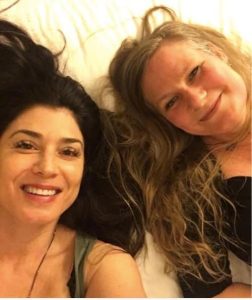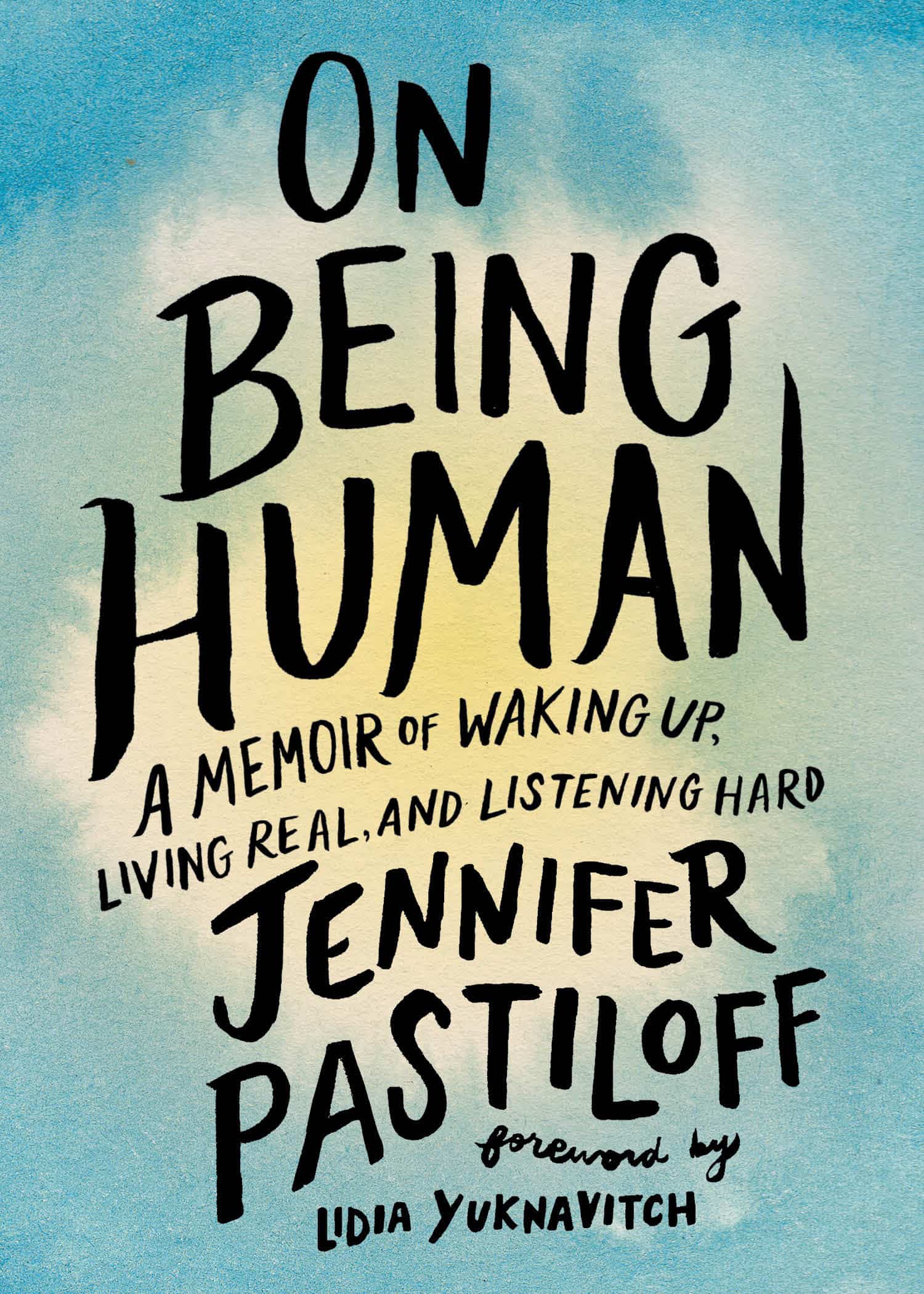By Tanya Ward Goodman
You went to Katsuya at the Americana mall in Glendale to escape the sound of helicopters in your neighborhood. For an hour, your cell phone had been humming in your pocket alerting you to the concern of your friends and family.
“We are safe,” you typed. “Strange world.”
A few hours earlier, someone had crashed a car in front of your neighborhood Trader Joe’s. With the police in pursuit, this person took shelter in the grocery store. He was armed. He barricaded himself. Hostages were taken. Allegedly, he’d already shot his grandmother. And his girlfriend. The scene was still unfolding.
In LA, there are always helicopters. When they start to collect in one place a person begins to wonder.
Twenty-six years ago, when you moved to this sprawl of asphalt, palm frond and bougainvillea, it took time for news to travel. On this day it took less than fifteen minutes. Without leaving the chair in your back yard, you witnessed, on the tiny screen of your phone, the building of a story. You read tweets and skimmed conjecture on the neighborhood message board. Someone was transcribing directly from the police scanner. You saw the first Facebook post. You watched the tide build. It was a tide of mourning, musing, and wondering. All the while, the sound of helicopters grew louder.
When your in-laws called from the other side of the country to say they’d seen your Trader Joe’s on CNN, your teenage son flipped the switch on the TV. As a family, you watched snipers assemble on the roof of your local cheese shop. You heard a reporter describe the produce section as a possible place to hide.
You turned off the TV. You packed your family into the car and headed to the movies. There was nothing you could do. And you couldn’t watch TV. You couldn’t listen to the helicopters any more.
You’d just settled into the booth of a chain Japanese restaurant located in a faux town square, when your phone buzzed in your pocket. Imagining it was your mother, you reached for it. It was, instead, an alert from the LA Times. Jonathan Gold had died. You’d never met the restaurant critic, but you were crying anyway.
Your waiter arrived, all crisp shirt and slick cheer.
“How are we?” he asked.
“Not great, actually,” your husband said. “Jonathan Gold is dead and there’s a hostage situation at our Trader Joe’s.”
“Who?” the waiter asked. “I’m sorry,” he said.
Your husband explained. You encouraged catch-up reading, documentary watching and radio listening. The kids read the menu and looked off across the sprawl of turf that was the village green.
“My mom shops at Trader Joe’s,” the waiter said. “In the valley.”
You wondered if Jonathan Gold ever reviewed the Katsuya in the valley. The one where your boss on that television show took you to celebrate the back nine pickup. You were half the age you are now when he presented you with the albacore like a magician revealing a dove. There were tender slices of delicately seared fish, pink and translucent as a baby’s ears. Your boss watched as that first tangy drop of ponzu sounded an alert on your tongue, preparing it to receive the sprinkle of crisp onion, the most tender of flesh. “Go on,” he said.
Twenty-five years later, you sat in the outsized, over-designed version of that small place on Ventura, waiting to eat slivers of protein buried beneath a fried frenzy, everything salted and crisped as a carnival midway in August. You were, no doubt, steps away from a dozen Gold recommended eateries, but you were here. The sun was a searchlight in your eyes.
“We need to change everything,” your husband said. You were on the way home in the car.
Your mouth was parched. Your mind was already buffing out the slight impression left by two hours in the movie theater.
“When you are in a restaurant on the day Jonathan Gold dies,” your husband says, “You should be in the company of other mourners.”
“I’m pretty careful,” the waiter had said. “I kind of insulate — try not to let in too much bad news.”
Who can blame him?
You blame him.
You do the same thing.
You blame yourself.
You receive a text from a friend: “I feel…ugh awful sad…mad (at who?) strange.”
Yes.
There is so much bad news.
“I’m sorry,” the waiter had said. “Thanks for your honest answer,” he’d said.
You arrived home to find the air still vibrating. Your Trader Joe’s was now a crime scene. Someone had been killed. You didn’t yet know who. You thought of the people you always see at Trader Joe’s. You thought of a woman who wears her silver hair long and straight. Your mother wears her hair this way, too. It became urgent to get the children to bed. It was urgent to move forward into sleep. You were (you are) aware of your good fortune, of the way you could dip in and out of tragedy; of the way a movie theater could insulate you from the heat and noise of this city. But you wanted to silence the helicopters, to rewind the day, to start the story again in a place where there wasn’t a gun in the closet.
The next day, you drove by the market. You saw the flowers and the notes, the chalk psalms on the sidewalk. You went to the grocery store across the street – the fancy one where in your twenties, you splurged on plump Wolferman’s English Muffins and name brand gin. You rarely walk into this fancy grocery store without remembering that girl you were: the one with the crumpled twenty in her pocket. That girl would be surprised to see you bumping hips with your kids as they toss expensive crackers and organic coconut water into the cart. They don’t need this stuff. You don’t need this stuff. But you are tired of arguing and so you usually let it go. You sometimes take for granted the ability to let five or ten or twenty dollars slide through the cracks. You are usually trying to avoid conflict. Sometimes you avoid everything. At Gelson’s on this day you couldn’t avoid the fact of everyone’s body. You couldn’t avoid the sad eyes of the acquaintance you ran into near the plums. You couldn’t avoid the rush of love you felt for the cashier named Cely who always notes how much your children have grown. The bagger’s nails were perfect ovals of sky blue. You beamed some love to those long fingernails. It was a silent beam of love because you could feel the words swimming through a lake of tears somewhere in the back of your throat. You didn’t want to spill.
Two days later, (today) the facts are this: a young woman was killed. She was hit by a bullet meant for the gunman. In the reports of the incident, it says “the bullet travelled.” Fired from the gun of a police officer, the bullet travelled across the parking lot of the market and into the arm of Melyda Corado. The bullet continued to travel until it took her life. You might say the bullet travelled from the neighborhood of the gunman. Or the bullet travelled from the sale of the gun. Borne on the back of rage, fear, heartbreak and loss, this bullet travels. No matter how many people lay down in front of it, the bullet keeps travelling through our country.
The gunman has been arrested. His grandmother and his girlfriend are still alive. You know at least one person who was inside the Trader Joe’s when everything happened. But here you are, out in the world at the orthodontist. You sit in a hard wooden chair. Your daughter takes a hard metal chair on the opposite wall. She is angry because when she asked for ice cream, you reminded her that earlier in the day, you’d bought a big box of popsicles. You are no fun. You have no sense of the brevity of life and the need to take full advantage of everything.
Your favorite high school teacher often wore a t-shirt that said “Life is Short. Eat Dessert first.” She was killed when a semi-truck hit her car. You are getting dark. You are not sure where you are going.
Jonathan Gold was 57. You are surprised that he was only seven years older than you. You always felt (still feel) that he was an adult in the world of Los Angeles, one of those grown ups helping to show you the way. You assumed that one day, when you grew up and became a real writer (whatever that means) you’d meet him. Maybe you’d become friends.
You are grown up. You are sitting in the orthodontist’s office waiting for your daughter to have her braces tightened. You drove here in a Volvo station wagon.
You are a real writer because you write. When something happens (and something is always happening) you sit down at the computer or open up your notebook and you write. You write to figure out what happened.
In the orthodontist’s waiting room, there is a nice woman with two children – a boy and a girl. All three have blonde hair and rosy cheeks. The woman has extremely straight teeth. Her son is being petulant and she’s cheerily ignoring his mood. She’s using her “bright” voice to move things forward.
You’re reading an essay in a magazine, but you are also watching the scene before you. You want to keep this woman company in her motherhood. You want to give her a ribbon for participation. (Or maybe you want a ribbon for participation.)
“Mint?” she says. “The newest Trader Joe’s offering.”
She holds a small tin box filled with smooth white squares.
“Thank you,” you say. You take one. It tastes faintly of mango and of mint. It tastes of community and kindness.
You used to believe that one day you would meet Jonathan Gold. You had a lot of mutual acquaintances. You like to eat. He was a writer. You are a writer. You thought that maybe you’d just float together one day. This does happen. It’s happened to you. But also the opposite is true. The bomb floats into the peaceful village. The plane falls from the sky and lands on a house with freshly painted shutters. These moments of tragedy are not always ours to avoid, but moments of connection are ours to seek. There’s no time but now.
Jen’s book ON BEING HUMAN is available for pre-order here.



There are too many perfect phrases here for me to even begin. Just a thank you for this.